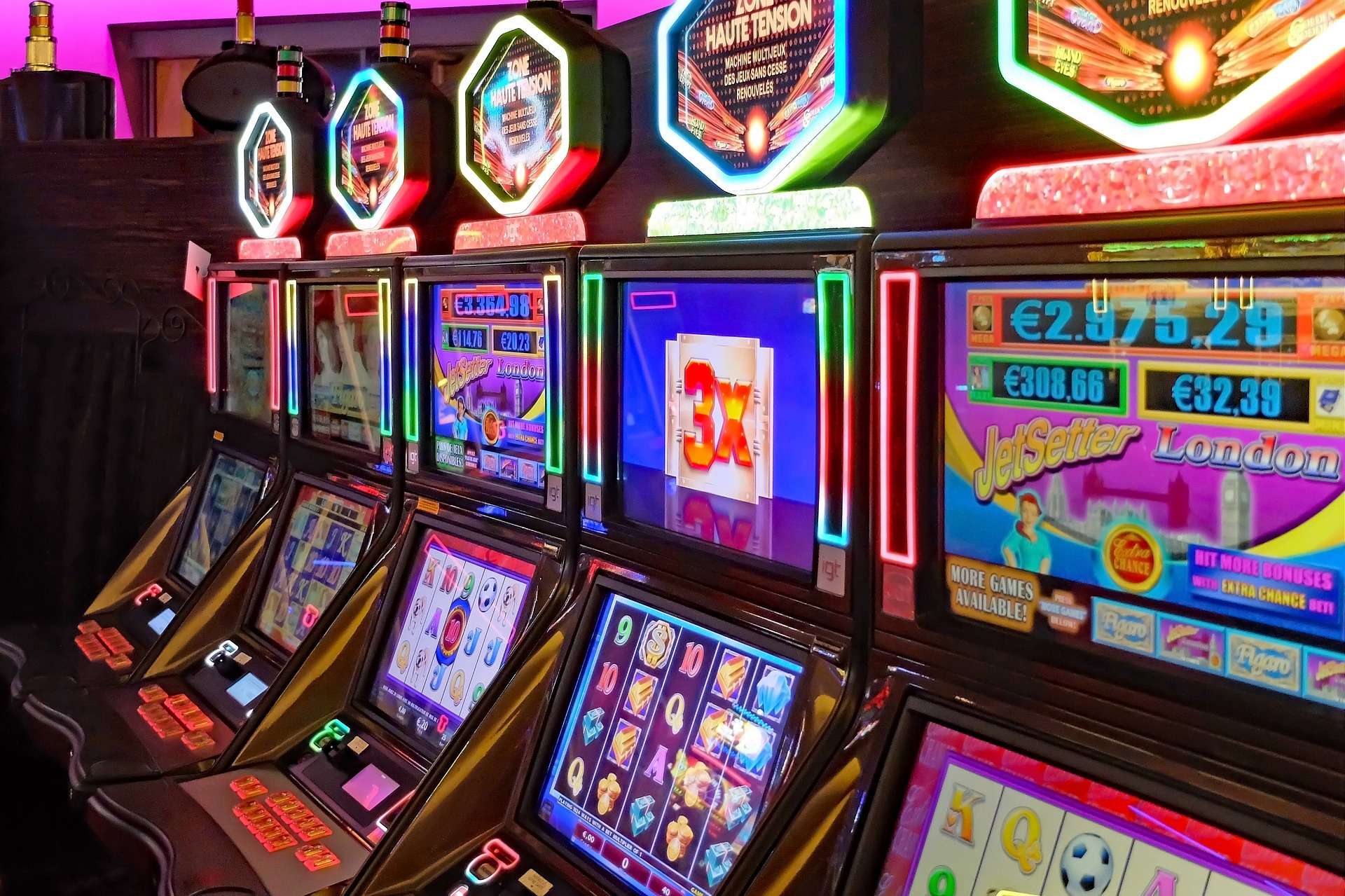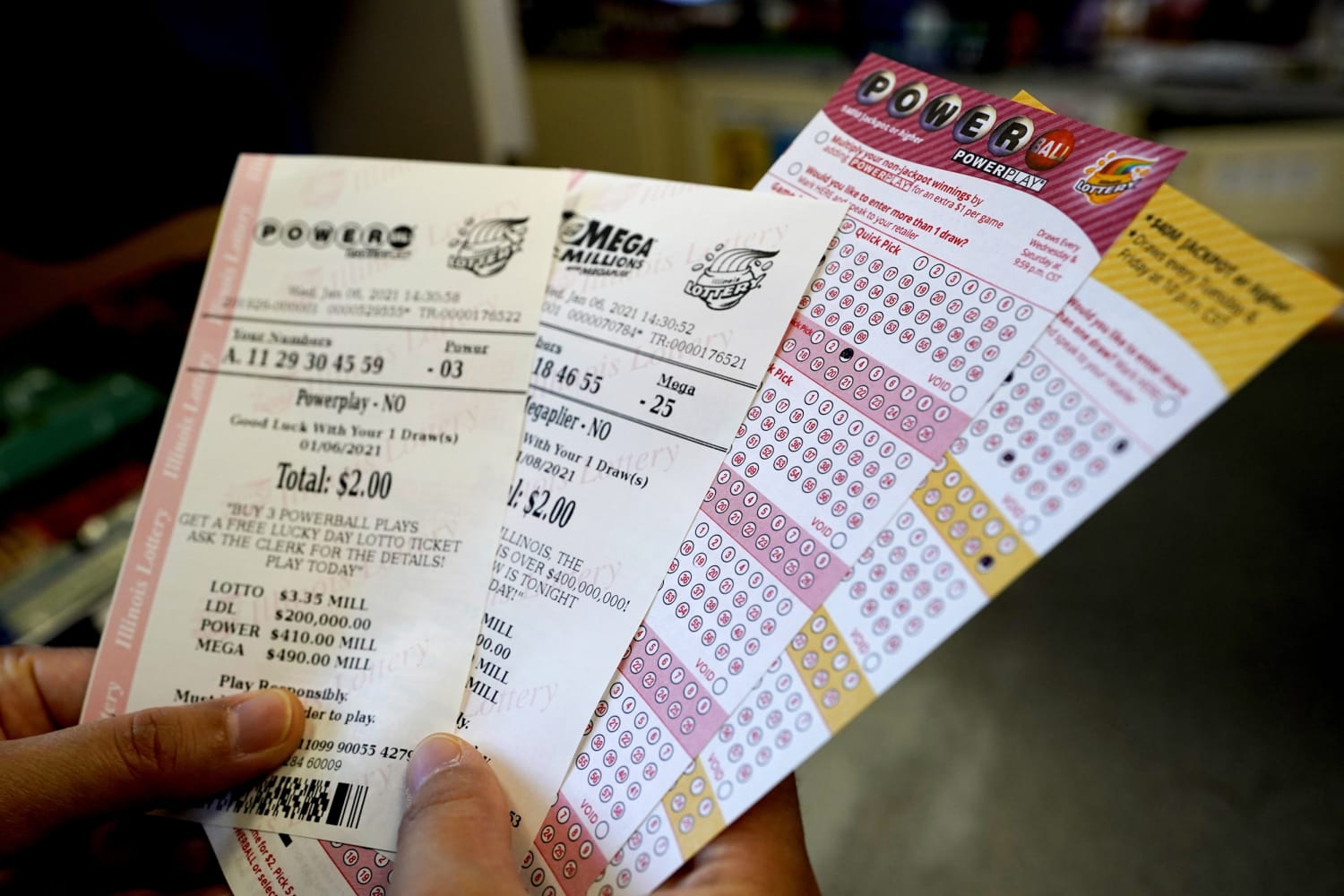Introduction
When To Walk Away From A Slot Machine: The allure of the slot machine has been a staple of casino culture for decades, captivating players with the prospect of winning big and the excitement of each spin. However, in the midst of the thrill, it’s crucial for players to know when to walk away from a slot machine to maintain responsible gambling practices and ensure an enjoyable gaming experience.
We will delve into the world of slot machines and explore the signs and strategies that indicate the right time to stop playing. From setting budget limits and loss thresholds to recognizing emotional cues and time management, we will unravel the essential factors that influence the decision to walk away.
Understanding the random nature of slot machines, we will explore how players can maintain control over their gambling sessions and avoid falling into the trap of chasing losses or exceeding their limits. Responsible gambling is not just about winning or losing; it’s about knowing when to step back and enjoy the entertainment without sacrificing financial well-being.
Join us as we navigate through the dynamic landscape of slot machine play, exploring the fine line between excitement and responsibility. Whether you’re a seasoned gambler or a curious novice, this article will equip you with valuable insights to enhance your slot machine experience and ensure it remains a safe and enjoyable pastime. Let’s embark on a journey of self-awareness and responsible play, learning when to walk away from a slot machine and embracing the true essence of casino entertainment.

How long should you stay on one slot machine?
Well, mathematically speaking, there is no difference whether or not you are playing one slot or moving around the casino. Due to the fact that slots are built around RNGs, and the consequence of every spin is totally arbitrary, you’ll get the same fate whether you play at one slot the entire day, or move around.
The amount of time you should stay on one slot machine can vary depending on several factors, including your budget, entertainment goals, and overall gambling strategy. There is no fixed or universal time limit that applies to all players. However, it’s essential to approach slot machine play with responsible gambling practices in mind.
Budget: Before starting, set a budget for your slot machine play. Stick to this budget and avoid chasing losses. If you find yourself depleting your allotted funds, it may be time to move on to another activity.
Entertainment Value: Slot machines are designed for entertainment, and the enjoyment you get from playing should be a significant factor. If you’re having fun and staying within your budget, you can continue playing as long as you like.
Winning or Losing Streak: If you’re on a winning streak, it’s easy to get caught up and want to keep playing. Conversely, if you’re experiencing consistent losses, it might be wise to take a break and reassess your strategy.
Breaks and Time Management: Taking short breaks from slot machines can help you maintain focus and prevent excessive gambling. Set a time limit for your session and take breaks at regular intervals to ensure you don’t become fatigued or impulsive.
Ultimately, responsible gambling means being aware of your limits and knowing when to stop. Trust your instincts and prioritize enjoyment and responsible play. If you’re not having fun or if you feel like you’ve been playing for an extended period, consider taking a break or exploring other entertainment options at the casino.
Is it better to stop a slot machine or let it go?
On the slots, you can’t change the house edge. Quick-stopping the reels doesn’t help you, but it does help the house. So really, there’s no reel dilemma. Unless you’re just in a hurry to win or lose and then move on, let the reels stop in their own sweet time.
Whether to stop a slot machine or let it go depends on the individual’s gambling strategy, personal preferences, and the specific circumstances during gameplay. There is no definitive answer as each approach has its pros and cons:
Stopping the Slot Machine:
- Pros: Stopping the slot machine after a certain number of spins or wins can help you control your budget and avoid overspending. It allows you to set clear limits and stick to a pre-determined gambling session.
- Cons: If you stop the machine too soon, you may miss out on potential winnings during a hot streak. Additionally, slot machines operate on random number generators, so each spin is independent and not influenced by previous outcomes, making it challenging to predict the best time to stop.
Letting the Slot Machine Go:
- Pros: Allowing the slot machine to continue spinning can be exciting, especially during a winning streak. It offers the chance for bigger wins and the thrill of uncertainty as you let the game unfold.
- Cons: Letting the slot machine go without setting limits can lead to overspending and potentially chasing losses. Players may get caught up in the moment and lose track of time and money spent.
The key is to find a balance that suits your gambling style and financial situation. Establish a budget, set win/loss limits, and practice responsible gambling. Trusting your instincts and being disciplined in your approach can lead to a more enjoyable and controlled slot machine experience. Remember, slot machines are games of chance, and the outcome is ultimately unpredictable, so gambling responsibly is essential for a positive gaming experience.
Should you stay on the same slot machine?
This could be because they believe the slot machine will turn ‘cold’ soon after. However, this is a myth. Sticking to one machine doesn’t affect your odds, and moving machines doesn’t have any impact either. Remember, slots use a Random Number Generator (RNG) to ensure that the results from each spin are randomised.
Whether you should stay on the same slot machine or switch to another one depends on various factors and personal preferences. There is no one-size-fits-all answer, and it ultimately comes down to your gambling goals and strategy. Here are some considerations to help you decide:
1. Winning or Losing Streak: If you’re on a winning streak, some players believe that sticking with the same machine increases their chances of hitting more winning combinations. However, it’s essential to remember that slot machines operate on random number generators, and each spin is independent of previous outcomes. The past results do not influence future spins.
2. Entertainment Value: Slot machines are designed for entertainment, so it’s crucial to consider how much enjoyment you’re getting from playing the particular machine. If you’re having fun and enjoying the game, you may choose to stay on the same machine for the entertainment value.
3. Budget and Limits: Set a budget for your gambling session and stick to it. If you’re nearing your spending limit or have reached your desired win goal, it may be wise to cash out and move on to another activity.
4. Variety: Some players prefer to switch machines to try different themes, bonus features, or betting options. This variety can add excitement and make the gaming experience more enjoyable.
Ultimately, there is no right or wrong answer. Whether you stay on the same slot machine or switch to another, responsible gambling is essential. Set limits, know when to stop, and prioritize enjoyment while playing. Remember, slot machines are games of chance, and there is no guaranteed winning strategy. Trust your instincts and have fun while gambling responsibly.

Is it better to stop a slot machine?
The random numbers that determine your outcome for that spin have already been set before you stop the reels. Game designers call it “illusion of skill.” You feel like you have control of the game. Your timing in stopping the reels doesn’t really make any difference.
Stopping a slot machine at a specific point during gameplay can be a strategic decision for some players, especially those who prioritize responsible gambling and budget management. Here are some reasons why stopping a slot machine can be beneficial:
1. Budget Control: One of the most crucial aspects of responsible gambling is setting a budget and sticking to it. By deciding to stop a slot machine after reaching a predetermined spending limit, you avoid overspending and the risk of chasing losses.
2. Setting Win Goals: Similarly, setting win goals can help you stay disciplined in your gambling session. If you hit your desired win target, stopping the machine allows you to walk away with a profit and avoid potentially losing your winnings by continuing to play.
3. Time Management: Slot machines can be captivating, and players may lose track of time while engrossed in the game. Stopping the machine at regular intervals can help you take breaks, maintain focus, and prevent excessive gambling.
4. Avoiding Impulsive Behavior: In the heat of the moment, players may be tempted to keep playing in the hope of hitting a big win. Stopping the machine at predetermined points reduces the chances of impulsive decisions and promotes responsible play.
While stopping a slot machine can be advantageous for responsible gambling, it’s essential to remember that the outcome of each spin is entirely random, and there is no guaranteed winning strategy. Gambling should always be done for entertainment purposes, and players should set realistic expectations and limits to ensure a positive gaming experience.
How many times will a slot machine hit?
But as a long-term average, the slots jackpots in our hypothetical casino show up an average of once per 10,000 spins. In all, there are 100,000 spins. With average results for these machines, we could expect about 10 jackpots. Depending on where you are in the casino, you might or might not see a slot player win big.
The number of times a slot machine will hit, or produce a winning combination, is entirely random and unpredictable. Slot machines operate on what is known as a Random Number Generator (RNG), which ensures that every spin’s outcome is independent and not influenced by previous or future spins.
The RNG is a computer algorithm that continuously generates random numbers at an incredibly high speed, even when the slot machine is not in use. When you press the spin button, the RNG generates a random number that corresponds to a specific combination of symbols on the reels. This process is so fast that it creates the illusion of a seamless and unpredictable gaming experience.
Due to the random nature of the RNG, there is no way to predict when a slot machine will hit or produce a winning combination. The machine has no memory of previous spins, and each spin’s outcome is entirely separate from all others.
This randomness is a fundamental principle of slot machines and other casino games, ensuring fairness and making it impossible for players to influence or manipulate the outcomes. While some spins may result in winning combinations, others may not, and winning is purely a matter of luck.
Players should approach slot machines with the understanding that the outcome is entirely random and that there is no strategy or pattern to guarantee winning. Gambling on slot machines should be done for entertainment purposes and with responsible play in mind.
How do you know when it’s time to walk away from a slot machine?
Knowing when it’s time to walk away from a slot machine is crucial for responsible gambling and managing your gaming session effectively. Here are some indicators that can help you decide when it’s time to stop playing:
1. Budget Limit: Set a budget for your gambling session and stick to it. If you’ve reached your pre-determined spending limit, it’s time to walk away, regardless of whether you are winning or losing.
2. Win or Loss Goal: Determine a realistic win goal or loss limit before you start playing. If you reach your win goal, consider cashing out and ending the session with a profit. Conversely, if you hit your loss limit, it’s best to stop playing to avoid further losses.
3. Time Management: Slot machines can be captivating, and players may lose track of time while engrossed in the game. Take breaks at regular intervals to maintain focus and prevent excessive gambling.
4. Negative Emotions: If you find yourself feeling frustrated, stressed, or upset while playing, it’s a sign that it’s time to walk away. Gambling should be an enjoyable activity, and negative emotions indicate that it’s not a positive experience.
5. Feeling Distracted: If you’re distracted or not fully present while playing, it’s a good idea to stop. Being focused and aware of your gambling choices is essential for responsible play.
What are the signs that indicate it’s best to stop playing a slot machine?
Knowing when it’s best to stop playing a slot machine is essential for responsible gambling and ensuring a positive gaming experience. Here are some signs that indicate it’s time to walk away from the slot machine:
1. Depleted Budget: If you’ve reached your pre-determined budget or spending limit for the gambling session, it’s crucial to stop playing. Continuing to play beyond your budget can lead to financial strain and potential losses.
2. Hitting Loss Limit: Set a loss limit before you start playing, and if you reach that limit, it’s time to stop. Chasing losses can lead to further financial setbacks and frustration.
3. Hitting Win Goal: Conversely, if you’ve achieved your desired win goal for the session, consider cashing out and ending on a positive note. Continuing to play after a win can lead to giving back winnings.
4. Emotions and Stress: If you’re feeling frustrated, angry, or stressed while playing, it’s a sign to take a break or stop. Gambling should be an enjoyable and entertaining activity, not a source of negative emotions.
5. Chasing Losses: If you find yourself increasing bets or playing longer to recoup losses, it’s a red flag to stop. Chasing losses is a risky behavior and can lead to further financial harm.
Are there specific guidelines or strategies to determine when to walk away from a slot machine?
While there are no foolproof guidelines or strategies to guarantee when to walk away from a slot machine, several responsible gambling practices can help you make informed decisions:
1. Set a Budget: Before you start playing, establish a budget for your gambling session. Stick to this budget and avoid exceeding it, even if you’re tempted to continue playing.
2. Loss and Win Limits: Determine a loss limit (the maximum amount you are willing to lose) and a win goal (the amount at which you’ll cash out and end the session). Adhere to these limits to prevent excessive losses and to secure any winnings.
3. Time Management: Set a time limit for your slot machine play. Take regular breaks to stay refreshed and maintain focus. Avoid spending too much time on a single machine, as it can lead to impulsive decisions.
4. Play for Fun: Remember that slot machines are games of chance designed for entertainment. Treat the experience as a form of leisure rather than a way to make money.
5. Avoid Chasing Losses: If you encounter a losing streak, resist the urge to chase losses by increasing your bets. Chasing losses can lead to further financial troubles.

Conclusion
Knowing when to walk away from a slot machine is a skill that every responsible gambler should master. While the allure of winning and the thrill of each spin can be enticing, it’s essential to prioritize responsible gambling practices and maintain control over your gaming experience.
Setting a budget and sticking to it, along with establishing loss and win limits, are crucial components of responsible slot machine play. By doing so, you can ensure that your gambling activities remain within your financial means and avoid the risk of overspending or chasing losses.
Recognizing emotional cues and being mindful of your feelings while playing can also guide your decision to walk away from a slot machine. If you find yourself becoming frustrated, stressed, or impulsive, taking a break and stepping away can prevent potential negative outcomes.
Time management is another vital aspect of responsible gambling. Taking regular breaks during your gaming session can help you stay refreshed and maintain focus, preventing fatigue-induced decisions.
Ultimately, responsible gambling is about striking a balance between entertainment and financial prudence. Slot machines are games of chance, and there are no guaranteed winning strategies. Embracing the entertainment value of slot machine play while adhering to responsible gambling practices ensures a positive and enjoyable gaming experience.
By understanding when to walk away from a slot machine, you empower yourself with the knowledge to make informed decisions, safeguard your financial well-being, and preserve the thrill of casino entertainment responsibly. Remember, gambling should be an enjoyable pastime, and knowing when to step back ensures that it remains a fun and controlled activity in the world of casino gaming.










